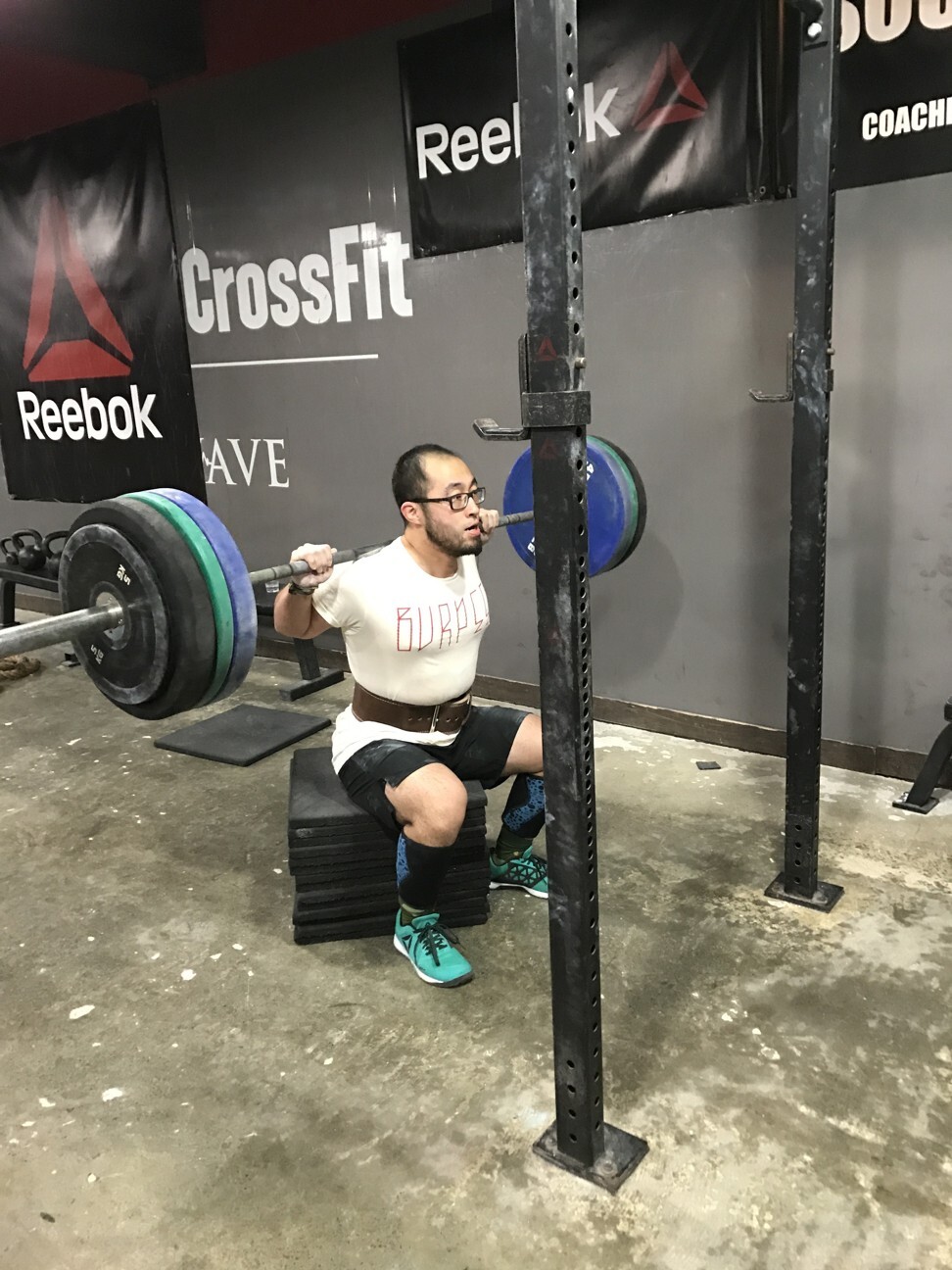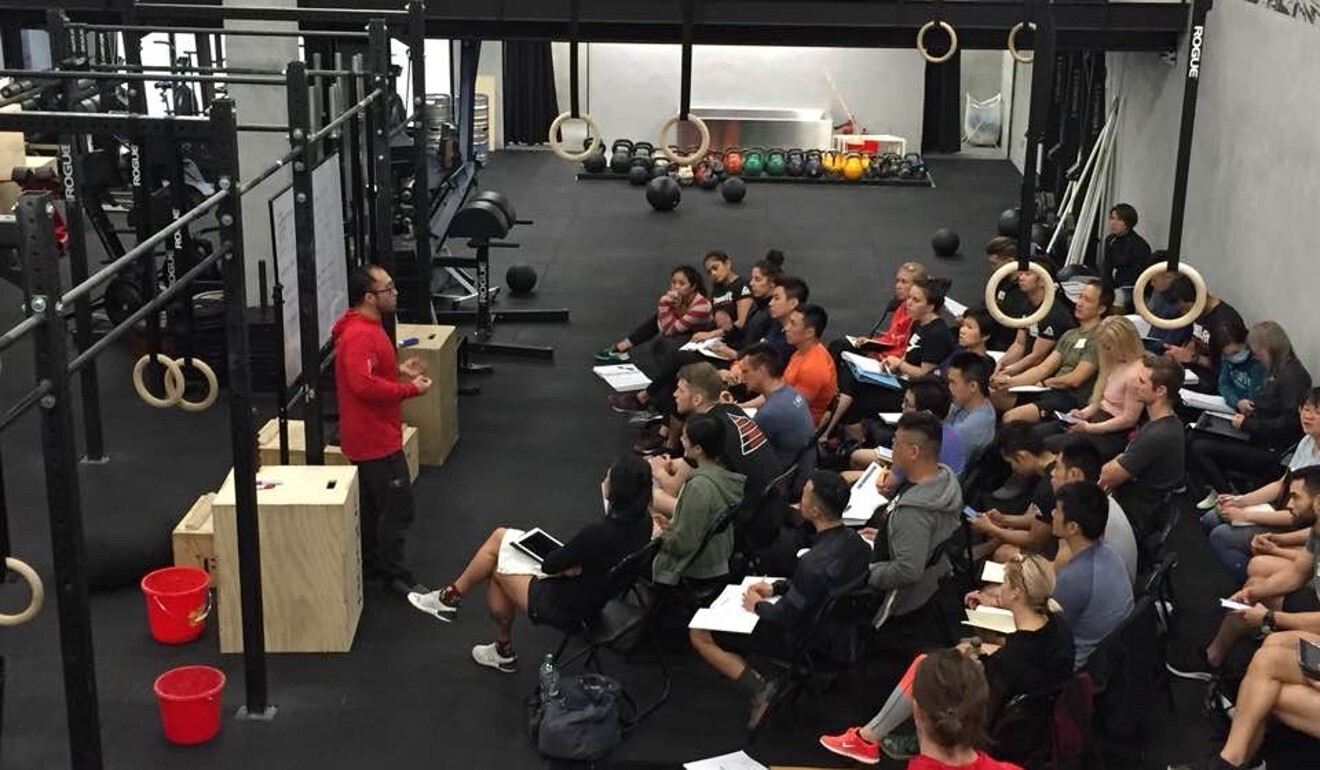
South Korean CrossFit coach’s quest to change drinking culture for fitness is an uphill battle – ‘People usually drink to relieve stress’
- The 37-year-old country manager for South Korea has been trying to get his fellow countrymen fitter since dropping his studies
- Lee Weon-woo says the country’s notoriously bad drinking culture, is slowly starting to change as people embrace fitness more
“In Korea, physiotherapists always work at the hospital,” said the 37-year-old. “And when I was in school I thought about approaching people who weren’t sick yet, and then my goal became to prevent disabilities from happening. But in Korea you could only deal with people who were already sick.”
Lee thought the system was backwards, treating patients after injuries and illness, rather than focusing on preventive measures like staying fit and healthy.

“When I tried it, and started studying it, I fell in love with the methodology. Focus on the simple stuff, the basics, dead lifts, squats and bench presses, which can change people’s lives. So I changed my career.”
Lee was in the middle of prepping his master’s dissertation in Melbourne but dropped out and returned home to Korea with an entirely new plan: coach and teach CrossFit. He knew this was going to be an uphill battle, and it hasn’t been easy at all, but he is seeing glimmers of hope in Korea.
CrossFit gets its first villain in steroid user Garard
In 2011 he opened a gym after coaching a number of sessions in a friend’s gym. Now called CrossFit Soundwave, he launched it with some help from Reebok, who were a title sponsor for CrossFit at the time. Since then, three South Korean athletes have gone to the CrossFit Games, including Seung-yeon Choi, who came 34th in the women’s division at the age of 22 this season. Korea also has 168 CrossFit “boxes”, as gyms are known.
“When I first started out, fitness in Korea was just for people who wanted to get a six pack and abs, but now it’s definitely gotten more about being healthy, so I’ve seen that change. People are starting to look into their diet because they love exercise now and they can’t do a lot of exercise if they don’t pay attention to their nutrition. And then they start looking at other bad things like alcohol.”
South Korea has a notoriously bad drinking problem. One 2014 study found that they drink more than Russians, on average, and four times more than Americans. Another study, published in 2018 estimates that alcohol costs the country US$20 billion annually in related health and social costs. Lee said this is highly embedded in Korean culture.

“One of the worst things is that a lot of people still go out and drink really hard. But there is now a small population that is growing who are saying they don’t want to do that any more.”
Lee said this is related to the stress of Korea’s working culture, which requires long hours, and a social culture tied to going for drinks with colleagues after work.
“For my father’s generation, drinking was the only way to get ride of stress. So people usually just drink to relieve stress.”
Japan’s CrossFit champion on how she stays in shape
He said it will be a long time before Koreans start to embrace fitness on a large scale in the country. A 2020 study did find a small but substantial increase in overall fitness levels concerning Korean adults from 2009 to 2017, however it was mostly within the male population. Lee said regardless, he will be at the gym, trying to help anyone he can.
“Compared to Western countries like Canada and the US, Korea’s mind is not there yet, but it’s actually getting better compared to 10 years ago. Nowadays people are starting to regularly exercise and you can see it changing, slowly, every day.”

